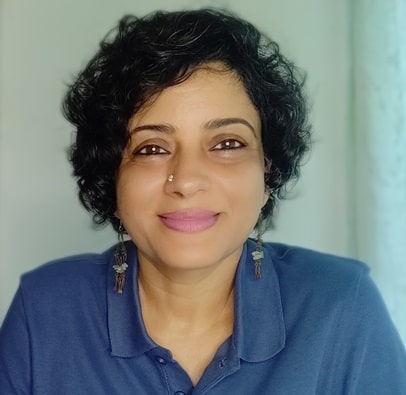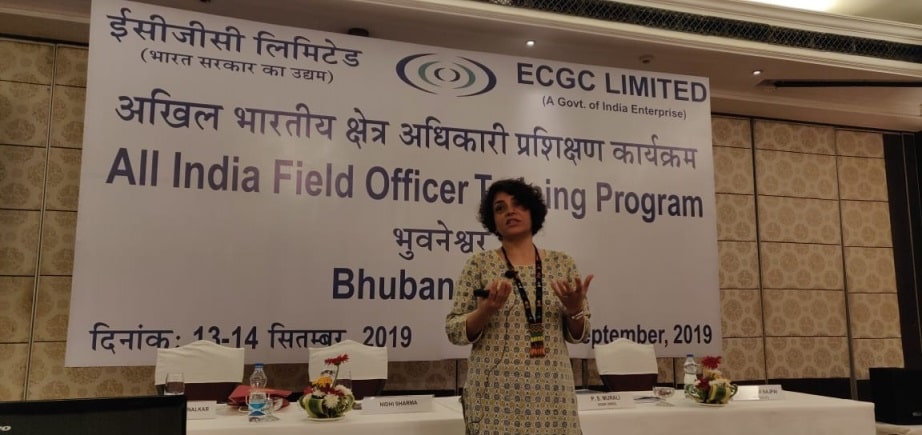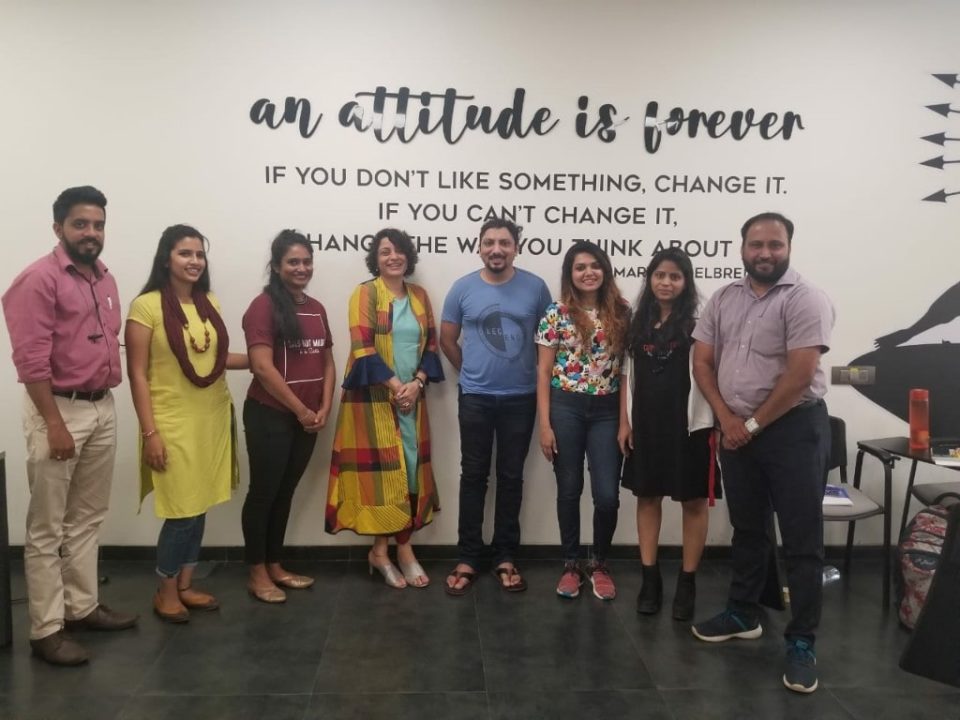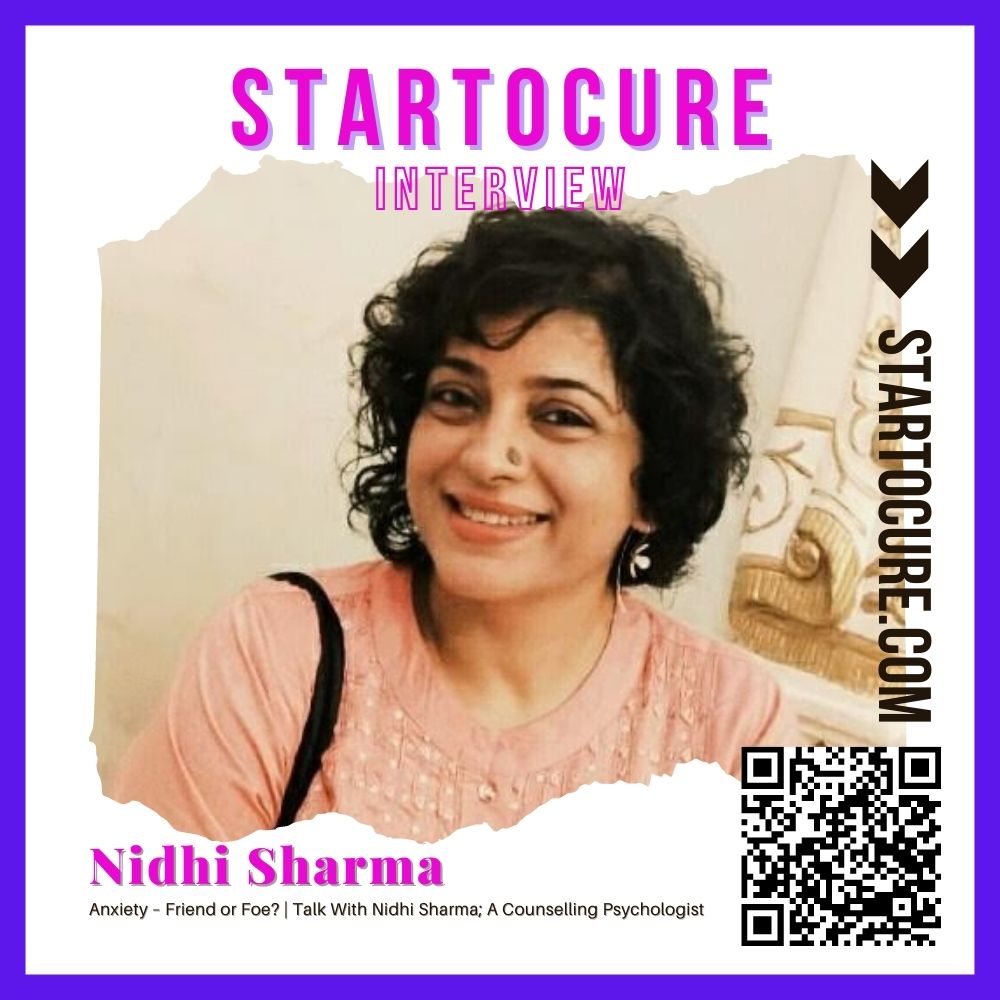First of all thank you, Nidhi Sharma, for your time. As you know we are living in a world that is creating so much panic, stress, anxiety, uncertainty, and since you are a counseling psychologist and a life coach I thought we will address these issues for our readers; Anxiety; a friend, or Foe.

Excerpts from our exclusive interview with Nidhi Sharma:
Q1) Let me start by asking you to tell us what exactly is anxiety and why is it that it is one of the common experiences one undergoes in life? How does anxiety come about?
Anxiety is a reaction of the human body to ascertain feelings like fear or apprehension of what we feel is impending. It may be the reaction one experiences, for example, before the examinations or the results of the examination, or the apprehension that a colleague may be rewarded with a promotion at work, overlooking our claims. These are just simple examples of what causes anxiety. Though these might feel insignificant as compared to, for example, what one feels when a loved one is fighting for their life. Unfortunately, the mind, whose job is to keep us feeling safe and secure, spirals out of control with the doomed thoughts as there are many possible consequences of such situations that cross our minds and make us anxious.
Your second question as to why anxiety is one of the most common experiences one undergoes has a simple answer. It is because, as I said earlier, the job of the mind is to keep us safe, we, human beings become prone to worry and think of what will happen if something goes wrong. This sets a chain of thoughts that take us to imaginative possibilities and a feeling of being out of control, making us worried, anxious, and maybe panicky. This is how anxiety comes about, fear of what was and what can be.
Q2) How does anxiety manifest? What are the common symptoms?
The most common symptoms seen are physical ones, constriction in breathing, restlessness, sweating, racing pulse rate, headache, upset stomach, sleeplessness, etc. However, at a mental and emotional level, spiraling negative thoughts, catastrophic thinking, mulling over what can be, taken over; lead to emotional outbursts or behaviors that are fearful.

Our mind is like an abyss, and our thoughts have no limit, faced with a fearful situation they jump from one to another, to find a solution, to be in control, setting off an endless chain of thoughts, which eventually make us feel more and more helpless and thus anxious.
A corollary of this is that one cannot think coherently and calmly when anxious. This can also set off unwanted consequences and thoughts about people and circumstances.
Q3) How does one treat anxiety?
There are medication lines available, of course, however in long run, these are detrimental to physical health, and hence the best thing to do is to work with psychologists, and counselors, who are trained to handle these emotional states and provide support.
Having said that simple strategies like relaxation techniques, deep breathing, pranayama, and regular exercise is very helpful in making one feel calm.
The secret is to keep your mind occupied, I for one, who suffers from GAD, Clean my cupboards when I get anxious, which gives me a physical and mental activity to do and gets my mind to be focused and mindful, be in that moment.
Severe anxiety, which means you are now experiencing it 3-5, times every day or more that is hampering your normal functioning, needs a professional intervention that has to be adjusted to suit the situation, symptoms, and the individual.

Q4) Would you say that anxiety has only negative connotations? Is there another side to the coin?
Of course, there is, every emotion is there to support us. Remember, that is the function of the mind and anxiety is an emotion and is no different from other emotions.
Anxiety tells us that we are living in the past or the future and need to start focusing on the present, mindful living is required. Anxiety, at a basic level, helps us to be prepared, pushes us to work harder, focus more, and motivates us to be better than before.
It can be a warning sign that helps us to take preemptive steps to face a daunting situation. A complacent attitude can be very destructive and anxiety helps us prepare for challenges.
There is a school of thought that anxiety makes us better leaders because we spur our teams to take proactive action on issues that may crop up. It is also observed that people who have experienced anxiety get better with emotional intelligence and hence they are more understanding and empathetic.
Q5) What would be your tips to those who undergo anxiety?
There are a couple of things that they can do:-
- Observe 1 min silence 5 times a day; breathing in SO and breathing out HUM
- Exercise, any form of physical workout, even if you are home; do stretches, yoga, spot jog, aerobics from youtube, etc.
- Take up a hobby or learn something new, (not watching TV) like cooking, gardening, macramé, scrapbooking, photography, a language anything that makes you excited.
- Practice gratitude; every night, write down 3 things that you feel good about in your life. Everyone has something that makes us feel good. Focus on the fact that you had a meal, you have a family, you have a job, a home, a friend circle, fresh air to breathe …the list is endless… and I recommend this as the most important tip of all
- If anxiety is still unmanageable, see a Psychological counselor, a professionally qualified expert
We respond to situations as we see them if we choose to see things as threats that cause anxiety, however, if we see them as challenges then we can tap into our infinite potential and take our life from good to great, turning anxiety into a friend than a foe.
Follow Nidhi Sharma @
| Website | https://bonimpressions.com/ |
| LinkedIn Handle | https://www.linkedin.com/in/nidhikharesharma/ |
| Facebook Handle | https://www.facebook.com/BonImpressions2011 |
| Twitter Handle | https://twitter.com/BonImpressions |
StartoCure is the online entrepreneurial magazine platform, where the team brings you interviews & Stories of Entrepreneurs, Inspirations, Influencers, Startups eco-system & Change-makers. StaroCure is also committed to bringing resources, research reports, funding reports, and analysis of the startups, as well as profiles of great businesses & entrepreneurs from all over the world.
Note: If you have an inspiring story to share with our audience and would like to be featured in our online magazine, then please write to us at hello@www.startocure.com, we will review your story and extend an invitation to feature if it is worth publishing.
StartoCure.com strives to share every positive information which would benefit our readers. However, one must do their own research & take own responsibilities before taking any actions. Startocure does not hold any responsibility for any reader action and any damages. Read Our Disclaimer
You may also like:
- Best Web Hosting Providers & Their Hosting Deals
- Meet Dr. Anjana Vinod Kumar | Founder & Director of Impact Enhancer | Breast Cancer Coach in India | Image Consultant | Author | Speaker
- Meet Ambika Pathania | Author of Food With Succulent Flavors | Author | Influencer | Content Manager
- Interview With Duo: Ashita Gandhi & Akhil Prasad | Co-Founders Of Women Entrepreneur Stories
- Meet Yash Arora | Founder & CEO Of Creme-Borne | Entrepreneur, Leader| Mentor





